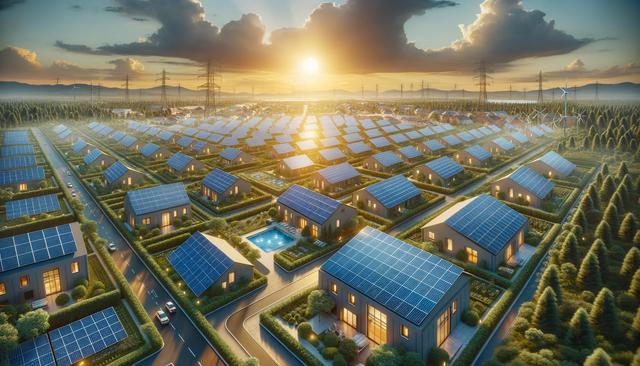Understanding Solar Systems and Panels
Solar systems and panels have become increasingly popular as more homeowners and businesses recognize the benefits of renewable energy. Designed to convert sunlight into electricity, solar panels are a key component of a photovoltaic (PV) system. These systems not only help reduce electricity bills but also contribute to environmental sustainability by lowering carbon emissions. A typical solar energy system includes solar panels, an inverter, a mounting system, and various electrical components to ensure safe and effective energy flow. With technological advancements, solar systems now offer efficiency levels that make them a practical solution for both urban and rural settings.
There are different types of solar panels available, including monocrystalline, polycrystalline, and thin-film. Each has its own set of features and applications. For instance:
- Monocrystalline panels are known for their high efficiency and long lifespan.
- Polycrystalline panels offer a balance between cost and performance.
- Thin-film panels are lightweight and flexible, ideal for unique installation settings.
Choosing the right system depends on your energy needs, budget, and the space available for installation.
Benefits of Installing a Solar Energy System
Investing in a solar energy system can offer numerous financial and environmental advantages. One of the primary benefits is the significant reduction in monthly electricity bills. Over time, the savings can offset the initial investment. Additionally, solar systems can enhance property value, making them a wise addition for long-term homeowners.
Some of the key benefits include:
- Reduced reliance on the traditional power grid
- Lower greenhouse gas emissions
- Potential eligibility for government incentives or tax credits
- Energy independence during peak usage or outages
Many users also appreciate the low maintenance requirements of modern solar systems. Once installed, they require only occasional cleaning and periodic inspections to ensure optimal performance. These systems are designed to withstand various weather conditions, offering durability and reliability year-round.
How to Choose a Top-rated Solar System
With a variety of products available on the market, selecting a highly rated solar system requires careful consideration of several factors. It’s important to evaluate the efficiency rating, warranty coverage, and the reputation of the manufacturer and installer. Efficiency determines how well a panel converts sunlight into usable electricity, and higher efficiency typically results in greater energy output from a smaller surface area.
Other factors to consider include:
- Durability and weather resistance
- Compatibility with existing home electrical systems
- Installation and maintenance support
- Customer reviews and third-party ratings
Working with certified professionals ensures correct system sizing and installation, which are crucial for achieving expected performance levels. Opting for well-regarded systems with proven track records can lead to better long-term results and fewer operational issues.
Cost Considerations and Financial Incentives
While the upfront cost of installing a solar panel system might seem high, it’s essential to look at the long-term financial picture. Installation costs vary based on system size, location, and specific energy requirements. Fortunately, there are often local or national incentives that can significantly reduce the initial expense.
Financial support might include:
- Tax credits or deductions
- Rebates from local utilities
- Low-interest financing options
- Net metering programs for energy credits
Over time, the cost savings on electricity bills can make solar systems a cost-effective choice. Moreover, many solar systems come with warranties that last 20 to 25 years, adding to their overall value proposition. It’s advisable to perform a cost-benefit analysis before committing, taking into account energy usage patterns and future energy price trends.
Installation and Maintenance Tips
Proper installation is crucial for the success of any solar system. It’s recommended to work with experienced professionals who can assess your property and determine the most effective configuration. Factors such as roof orientation, shading, and regional climate will influence system performance.
Maintenance is relatively straightforward. Key steps include:
- Cleaning panels to remove dust and debris
- Inspecting the system for any signs of wear or damage
- Monitoring energy production through software or a mobile app
- Scheduling professional check-ups every few years
Many solar systems come with monitoring tools that alert users to performance issues, making it easier to address problems promptly. By following these simple maintenance steps, users can ensure that their solar systems operate efficiently for decades.
Conclusion: Is a Solar System Right for You?
Choosing a solar system can be a smart move for those looking to reduce energy costs and contribute to environmental sustainability. With various systems offering exceptional quality and performance, consumers have access to top-rated options that meet a wide range of needs. Whether you’re a homeowner aiming to lower utility bills or a business seeking energy independence, modern solar technology presents a reliable and long-lasting solution. By understanding the available options and making informed decisions, you can enjoy the benefits of solar energy for years to come.




Leave a Reply